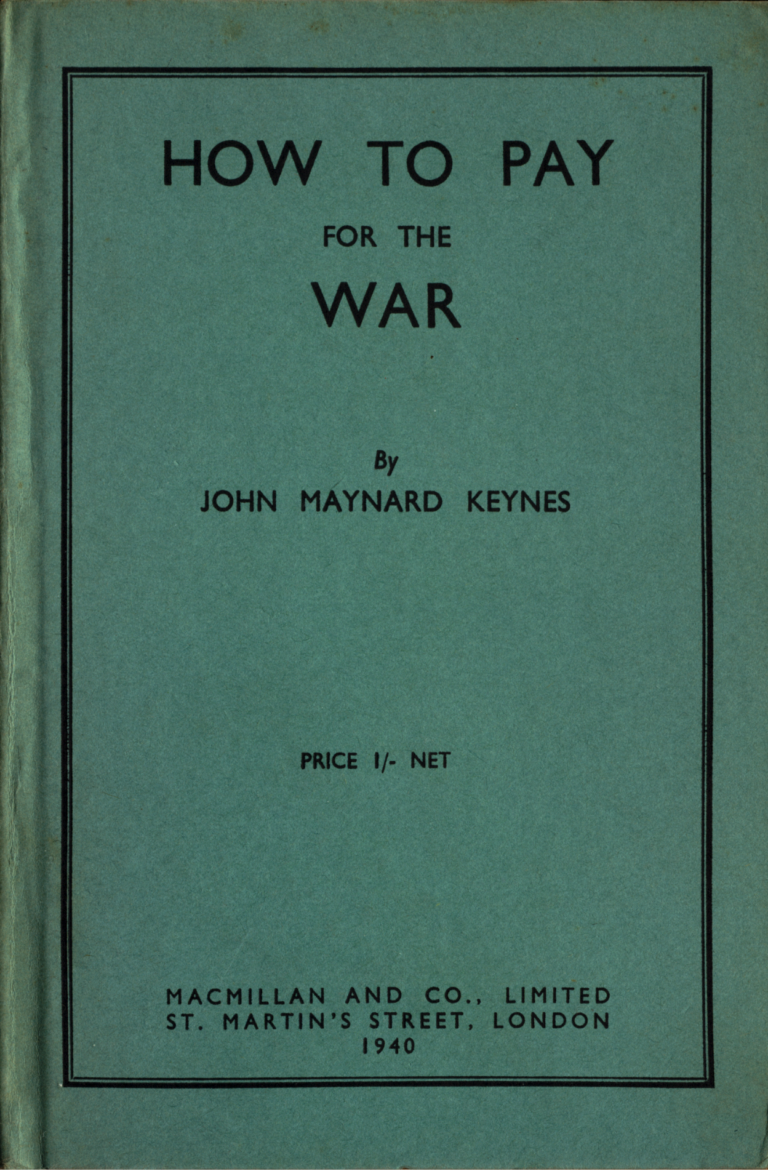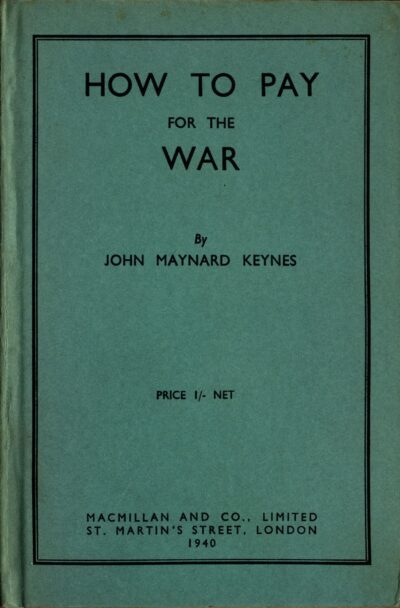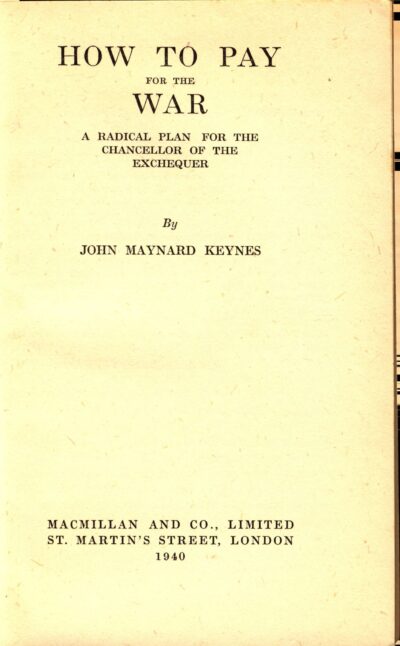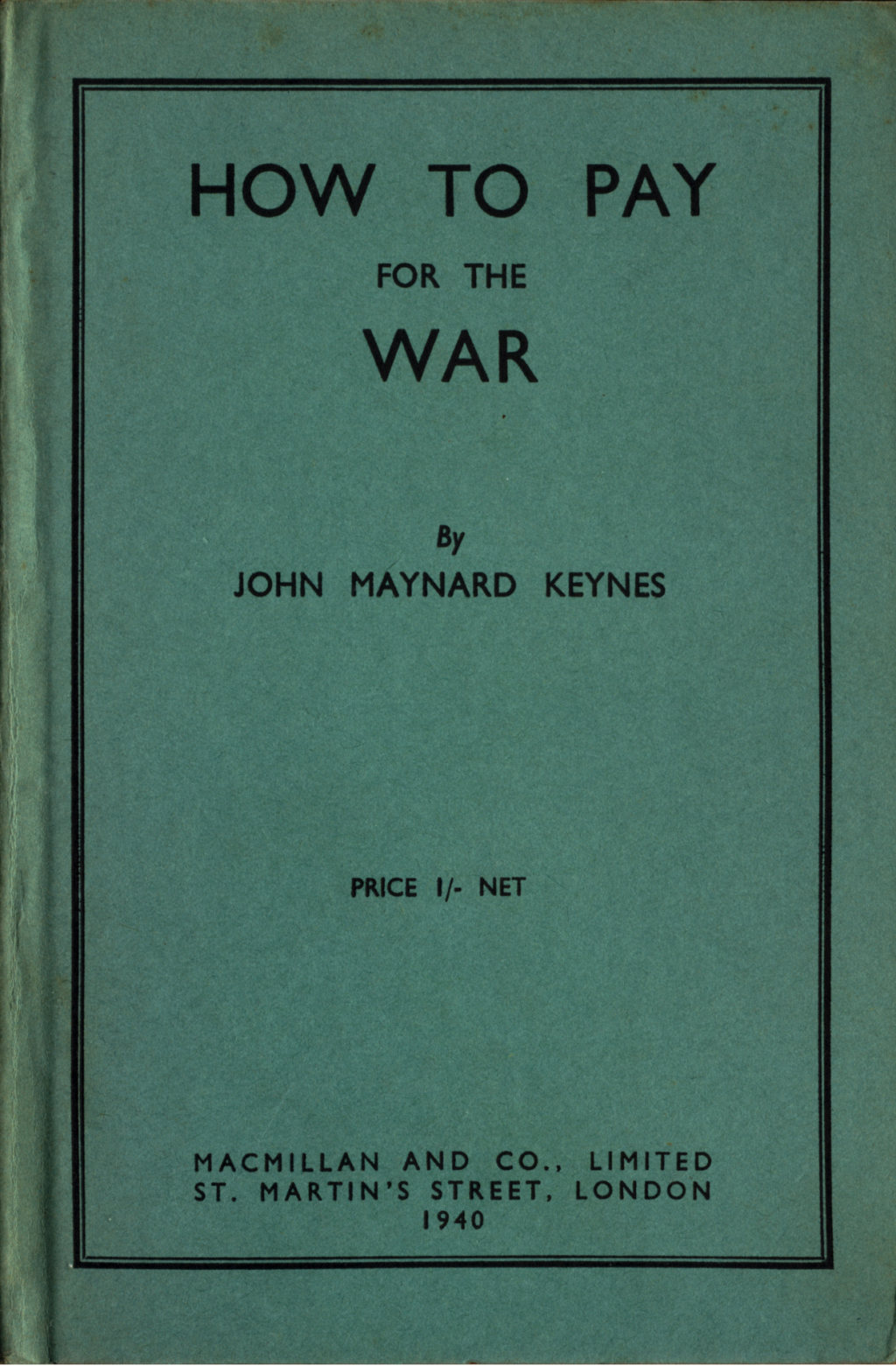John Maynard Keynes, How to Pay for the War (1940)
John Maynard Keynes was an English economist whose theories on how to minimise boom and bust cycles and maintain full employment through the utilisation of fiscal and monetary policies became the dominant approach to economic policy throughout most of the western world between the end of the Second World War and the ‘stagflation’ crisis of the 1970s.
Though written towards the end of his career, How to Pay for the War would play an important role in his rise to theoretical dominance, as it very quickly became the basis of Britain’s economic approach to the conflict and received near universal praise from colleagues in the field. Written at a time when Britain stood virtually alone against Nazi Germany, the book was an attempt to explain how Britain could finance a war against a nation that was far larger than it in terms of both population and production. One pillar would be the creation and maintenance of full employment, ensuring that the full resources of the nation were mobilised towards the war effort. But another was a combination of deficit financing, and deliberately reduced consumption to ensure that no resources were unnecessarily wasted.
Keynes realised that the war could not be paid for simply by taxing the rich, even at historically high levels, and that the burden of the war cost had to be spread across all levels of society, even if that were politically difficult. Keynes suggested schemes of forced savings and deferred payment (of a portion of salaries until after the war) so that low-income earners would have some recompense for their wartime sacrifices. These schemes were intended, not just to reduce the immediate financial burden on government, but crucially to ensure that people had less money in their pockets which would otherwise drive up demand and consumption, and therefore divert resources. This was a very important issue, as in the circumstances of the war, workers tended to be working far longer hours, so if they were paid accordingly they would have far more spending power than they had enjoyed before the war, acting as incendiary fuel to an inflationary fire already created by increased government spending and the scarcity of goods.
How to Pay for the War is important to Menzies for several reasons. Firstly, because the first Keynesian budgets in Australian political history were introduced by Menzies’s wartime government, and his economic policy during the post-war Menzies era would likewise be shaped by Keynes. Secondly, the book was clearly a strong influence on Menzies’s policy advocacy in the early 1940s. During his wartime series of radio broadcasts, made famous by ‘The Forgotten People’, Menzies frequently made arguments that were clearly inspired by the book (one broadcast was even labelled ‘Paying for the War’). These arguments included repeatedly emphasising that taxing the well off would not be sufficient, and calling for schemes of forced savings and other measures to drive down demand for internal consumption. These were policies that were not popular with the Australian Labor Party or their UK counterparts, even though Keynes had gone out of his way to try to ensure equitable outcomes (indeed, in his plan the deferred payments would partly rely on keeping up the excess taxation on the rich for a period after the war).
Thirdly, despite Keynes’s best efforts, Britain would essentially be bankrupted by the war effort, playing a pivotal role in their reduced status as a global power in the post-war period. This would have a huge impact on Australia, forcing the nation to become more reliant on America for protection, and to seek new markets for export (now that Britain no longer had the spending power to absorb the majority of Australia’s goods). Australia itself was luckily spared from the worst economic consequences of the war, not because we employed better budgetary strategies than the mother country, but both because our war burden was not as large as theirs, and crucially because the stationing of large numbers of American troops in Australia injected a proportionately vast amount
You might also like...
Sign up to our newsletter
Sign up for our monthly newsletter to hear the latest news and receive information about upcoming events.






